By Okon Ekpenyong and Jessie Dingess
The world learned on December 13, 2022, of the untimely death of Stephen “Twitch” Boss, a former African American dancer on “So you think you can dance” and a DJ on Ellen Degeneres’ show who took his own life. So, in this year’s Ohio Legislative Black Caucus, OLBC Biannual convention at the Ohio Statehouse, its members focused on the state of the Black Family.
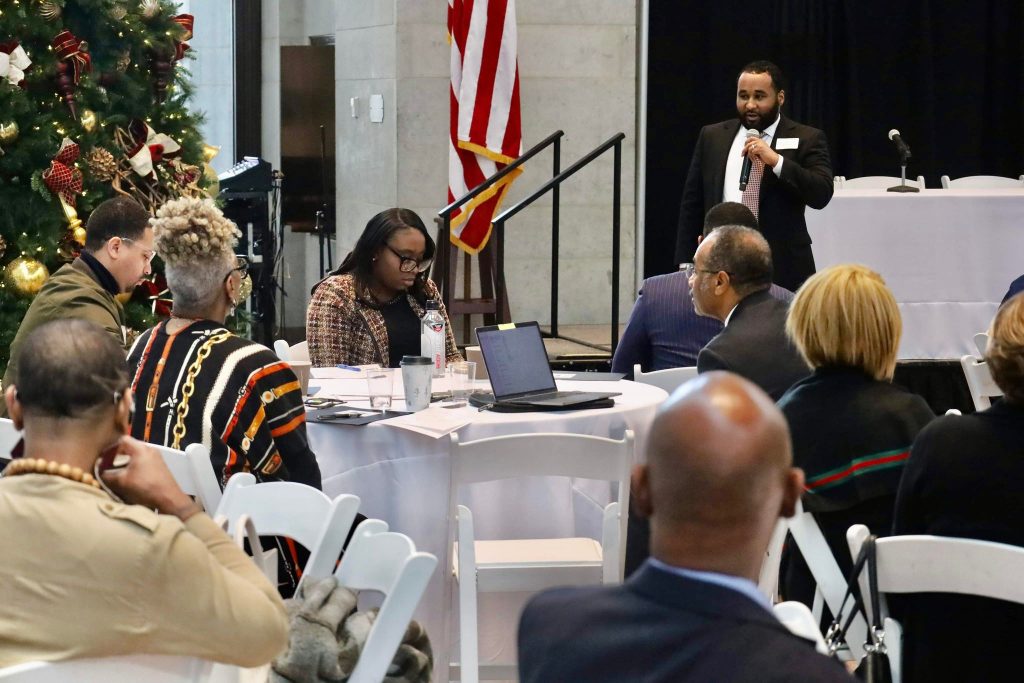
As part of the convention, there was a discussion on black health, particularly mental illness, and where to go from there, as well as a community discussion about often ignored issues, encouraging residents to access available resources. Representative Catherine Ingram, the newly elected 1st President of the OLBC, was the moderator.
The newly elected Treasurer for OLBC Rep Dontavius Jarells led the discussion for the State of the Black Family. Members of the Ohio Commission on Minority Health attended to discuss funding announcements that the state is offering. They provided a list of organizations that partner with the Ohio Commission on Minority Health to anyone with questions or how to connect with one that was closer to them.
History of OLBC
Back in 1967, under the leadership of State Representative C.J. Mclin of Dayton, Ohio, the OLBC was born. According to its website, the OLBC promotes, fosters, and sponsors educational, civic, and political activities to enrich and improve African American communities throughout Ohio.
The Ohio Legislative Black Caucus is the oldest legislative black caucus in the nation at 55 years old. Since its creation, members have focused on finding ways to help the community get ahead by educating the public about Black History Month and addressing the state of Black Health and wellness.
About four State Senators and more than twelve Ohio State representatives are active members of the OLBC.
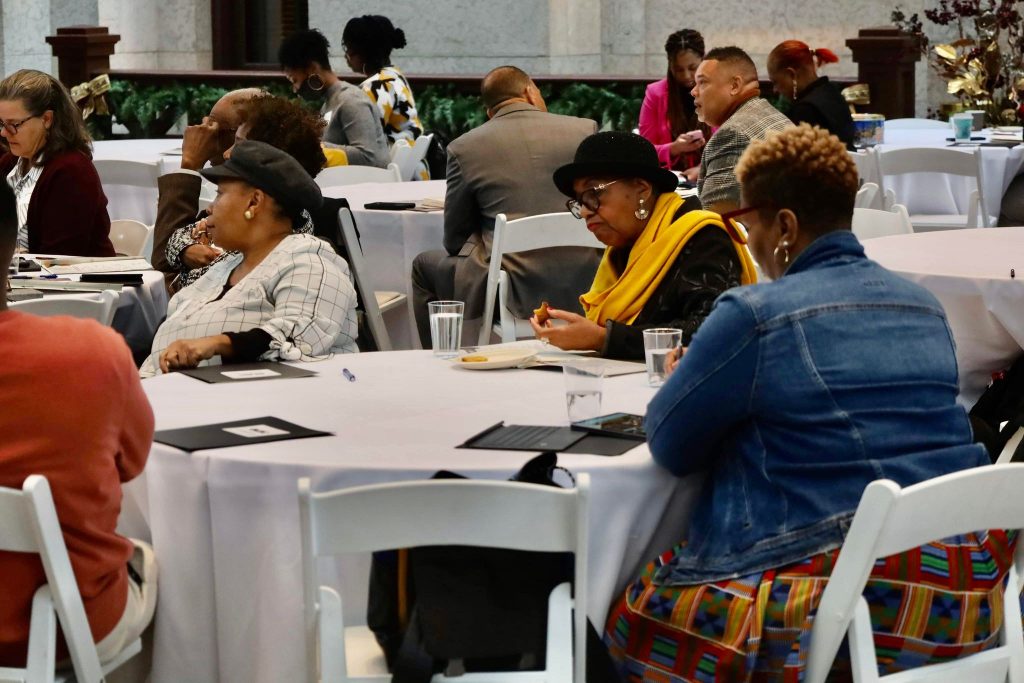
New Executive Committee assignment
OLBC announced its new Executive committees during its biannual convention at Ohio State: Representative Terrence Upchurch, representing District 10th, covering part of the Cleveland area, will serve as President. The outgoing President, Rep Juanita Brent, received a standing ovation for continuing the fight for important state policy and change.
In contrast, Representative Catherine Ingram and Representative Sedrick Denson will serve as 1st and 2nd Vice Presidents, respectively. State Senate Hearcel Craig will be the new Sergeant-at-arms, Rep Dontavius Jarrells will be the new secretary, and Rep Latyna Humphrey will be the new treasurer. State Senate Vernon Sykes will serve as Parliamentarian, who represents District 28, which covers parts of summit county, including its biggest city Akron.
A person from the governor’s office said, “Throughout the pandemic, Governor Mike DeWine told his OLBC members that racism is a health crisis; addressing disparities by working together is what this convention is all about.”
OLBC actively works on advocating for Legislative bills for Gun Reform, Maternal Health, Mental Health, Minority Health, Civil Justice, Criminal Justice Reform, Equity, and Wealth. At the height of COVID-19 and the nationwide protest over the death of George Floyd, OLBC became the voice for the voiceless on the Legislative floor.
“The State of the black family” was the themed agenda discussed at the Ohio Legislative Black Caucus Convention on December 16, 2022. Many Americans suffer health disparities due to location, race, education, or income.
They do not have the opportunity to live a healthy lifestyle, and as a result, they suffer from far more health issues than others. The National Partnership for Action defines health disparities as a type of health difference closely related to social or economic disadvantage.
It affects people who historically faced significant social and economic barriers preventing access to good health and a clean environment. They are often excluded or discriminated against because of their race, ethnicity, religion, socioeconomic status, gender, age, mental health, cognitive, sensory, or physical disabilities, sexual orientation, gender identity, geographic location, or other characteristics.
Food availability and access, decent housing, a safe workplace and home, affordable and dependable transportation, clean water and air, healthcare, and mental health are all factors that influence good health.
The Ohio Commission on Minority Health presented funding announcements for the availability of proposals, and the members of the Ohio Legislative Black Caucus introduced a list of legislation.
Maternal Health, Mental Health, Minority Health, Civil Justice, Criminal Justice Reform, Equity, and Wealth are among the legislative bills.
Representatives Catherine Ingram, Dr. Meredith Shockley-Smith, Jewell Woods, Representative Dontavius Jarrells, The Honorable Ray Miller, Angela Cornelius Dawson, The Honorable Eric Kearney, Stayce Ellis Fowler, and Representative Terrence Upchurch spoke at the roundtable.
As part of the Affordable Care Act, the U.S. Department of Health and Human Services developed a fact sheet detailing essential health benefits for racial and ethnic groups and how minorities and other communities can anticipate gaining from health coverage offered by the health reform law. Where do we go from here?
Support the New Americans magazine to continue to serve our community with precise news that affect the new American, immigrant and refugee community. https://paypal.com/donate/?hosted_button_id=8LHFS78NRNJJY&source=url










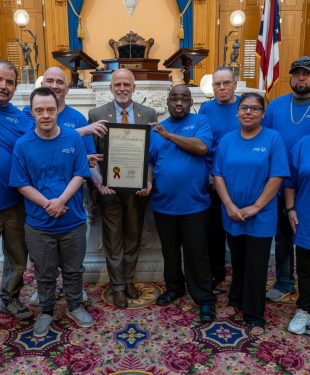
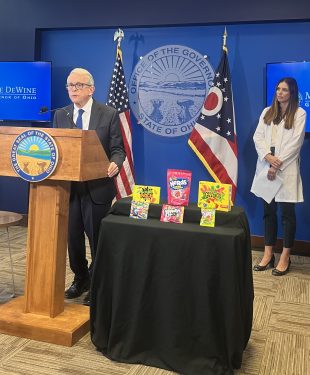




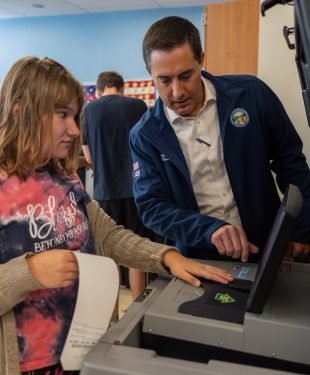











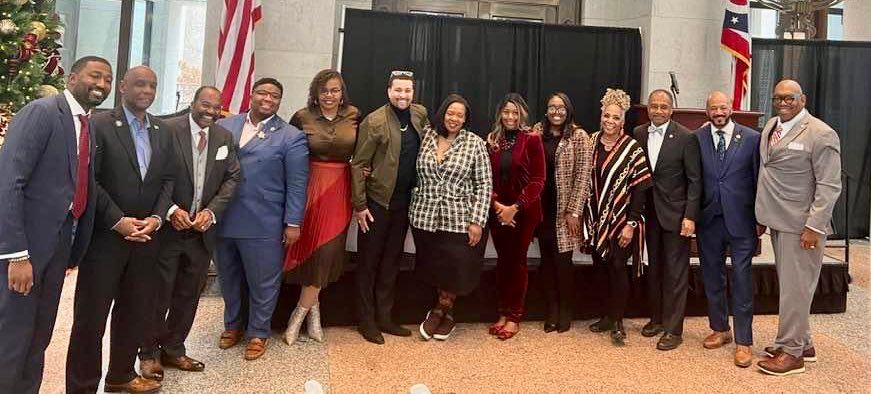







Leave a Reply
You must be logged in to post a comment.